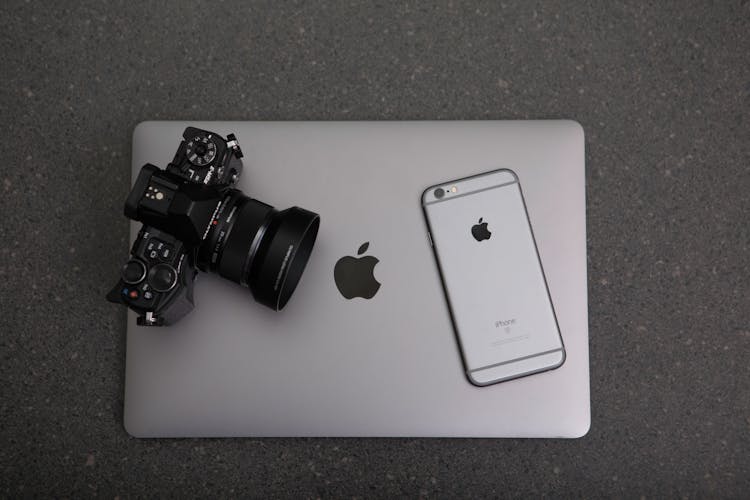All Categories
Featured
Table of Contents
TLDR Summary
- 📵 Digital detox can significantly reduce anxiety and stress levels.
- 🌙 Improved sleep quality with reduced screen time before bed.
- 🗣 Enhanced communication skills by promoting face-to-face interactions.
- 📅 Achieving a balanced digital lifestyle through clear planning and small steps.
In an age dominated by screens and constant connectivity, the concept of a digital detox has emerged as a beacon of hope for mental well-being. Digital overload can seep into our lives in subtle yet profound ways, manifesting as increased levels of stress and anxiety, erratic sleep patterns, and a persistent feeling of inadequacy fueled by social comparison on platforms that showcase carefully curated lifestyles. The fast-paced cycle of notifications and online engagements often leaves us feeling akin to hamsters on a wheel, endlessly running but getting nowhere. Amidst this cycle, fostering a digital detox becomes crucial, allowing individuals to reclaim their emotional balance, improve sleep quality, bridge the gap in social isolation, and hone their face-to-face communication skills.
Understanding the Mental Toll of Digital Overuse
Engaging with the digital realm can escalate anxiety levels, largely due to the endless notifications and the perpetual need to remain informed. The brain, overwhelmed with information, constantly fights against distractions, leading to a state of hyperarousal. A study published in the Journal of Mental Health confirms that individuals who spend several hours on social media platforms exhibit significantly higher anxiety levels than those who disconnect regularly [Source]. The lesson here is clear: it's vital to carve out time for untethered moments away from screens.
Moreover, disrupted sleep patterns contribute significantly to mental health struggles. The blue light emitted by devices hinders melatonin production, making it arduous to establish healthy sleep routines. According to the National Sleep Foundation, 90% of people report using electronic devices within an hour of bedtime, significantly impacting their sleep quality [Source]. By embracing the digital detox movement, individuals can experience profound improvements in their nightly rest and, in turn, their overall mental wellness.
The Transformational Advantages of Disconnecting from Digital Life
Shifting focus to the benefits, digital detoxification offers a plethora of advantages that extend beyond simple disconnection. Leading the charge is enhanced well-being. By intentionally reducing digital distractions, a clearer pathway to emotional stability and mindfulness presents itself. Individuals report feelings of calmness and rediscovery of purpose as they engage with their true selves, fostering a fulfilling relationship with their immediate world.
Improved sleep quality emerges as another remarkable benefit. Establishing boundaries that limit screen time prior to sleep can lead to deeper, more restorative rest. Sleep hygiene plays a pivotal role in mental health, underscoring the connection between quality sleep and cognitive function, mood regulation, and overall well-being.
When individuals take a step back from digital spaces, they inadvertently nurture their social lives. Reduced social isolation becomes a tangible benefit, as genuine face-to-face interactions take precedence. Spending quality time with family, friends, and community can fortify emotional connections, improving overall social well-being while enhancing emotional resilience.
Crafting Your Digital Detox: Practical Steps Forward
Embarking on a digital detox journey does not necessitate a complete abandonment of technology. Instead, it hinges on setting clear, achievable goals tailored to individual needs and lifestyles. Assessing motivations—whether aiming to reduce stress, improve sleep, or cultivate deeper connections—provides clarity and direction. Starting small with manageable detox periods, such as a single day or weekend, allows for gradual adjustment and boosts the likelihood of success.
Planning enticing screen-free activities can transform the detox experience into an exciting journey of exploration. Whether immersing oneself in creative pursuits such as painting, hiking, or diving into a captivating book, discovering the richness of life beyond screens can be profoundly fulfilling. Moreover, fostering a relaxing environment mitigates digital temptations; eliminating clutter, incorporating tranquil spaces for stress relief, and establishing relaxation techniques such as guided meditation seamlessly complements the detox experience.
Linking Digital Detox with Societal Wellness
In conclusion, the digital detox movement is rapidly gaining traction, illuminating the profound desire for wellness in an increasingly digital world. Today's society grapples with the delicate balance between connectivity and its hidden tolls on mental health. By taking conscious steps to unplug, individuals reclaim their sense of self, regain control over their time, and ultimately reconnect with what truly matters. The time to embark on this rewarding journey has never been better.
What are the benefits of a digital detox?
How can I effectively perform a digital detox?
Key Takeaways
- 🧠 Digital detox reduces stress and anxiety levels, fostering enhanced mental clarity.
- 🌌 Improved sleep quality can be achieved through proper screen time management.
- 🤝 Emphasizes the importance of reconnecting with loved ones through meaningful engagement.
- ✅ Essential strategies pave a smoother path for successful digital detoxification.

Mastering the Art of Unplugging: Your Guide to Effective Digital Detox
Table of Contents
Latest Posts
Navigating Free Credit Reports
Digital Detox Downsides: Navigating the Mental Health Challenges of Unplugging
The Dark Side of Digital Detox: Exploring Negative Mental Health Impacts
More
Latest Posts
Navigating Free Credit Reports
Digital Detox Downsides: Navigating the Mental Health Challenges of Unplugging
The Dark Side of Digital Detox: Exploring Negative Mental Health Impacts